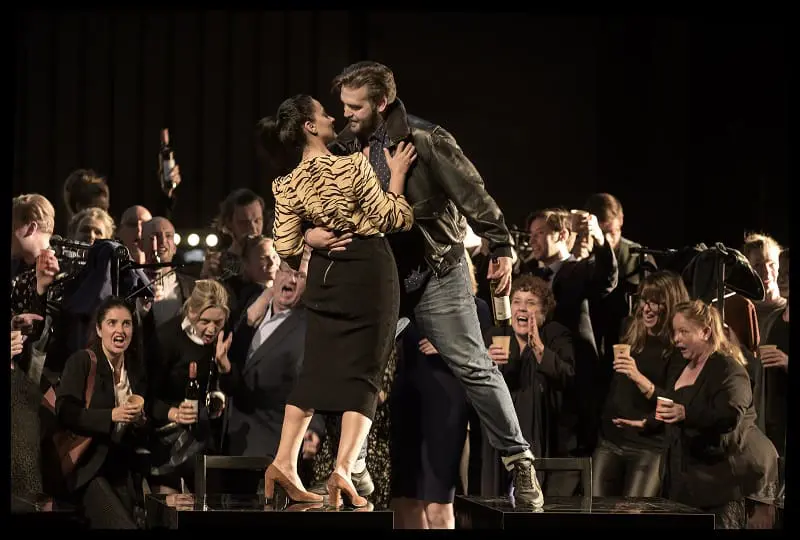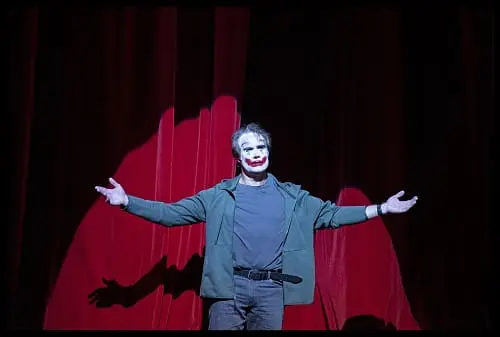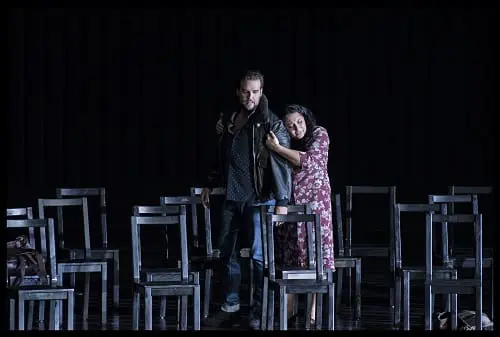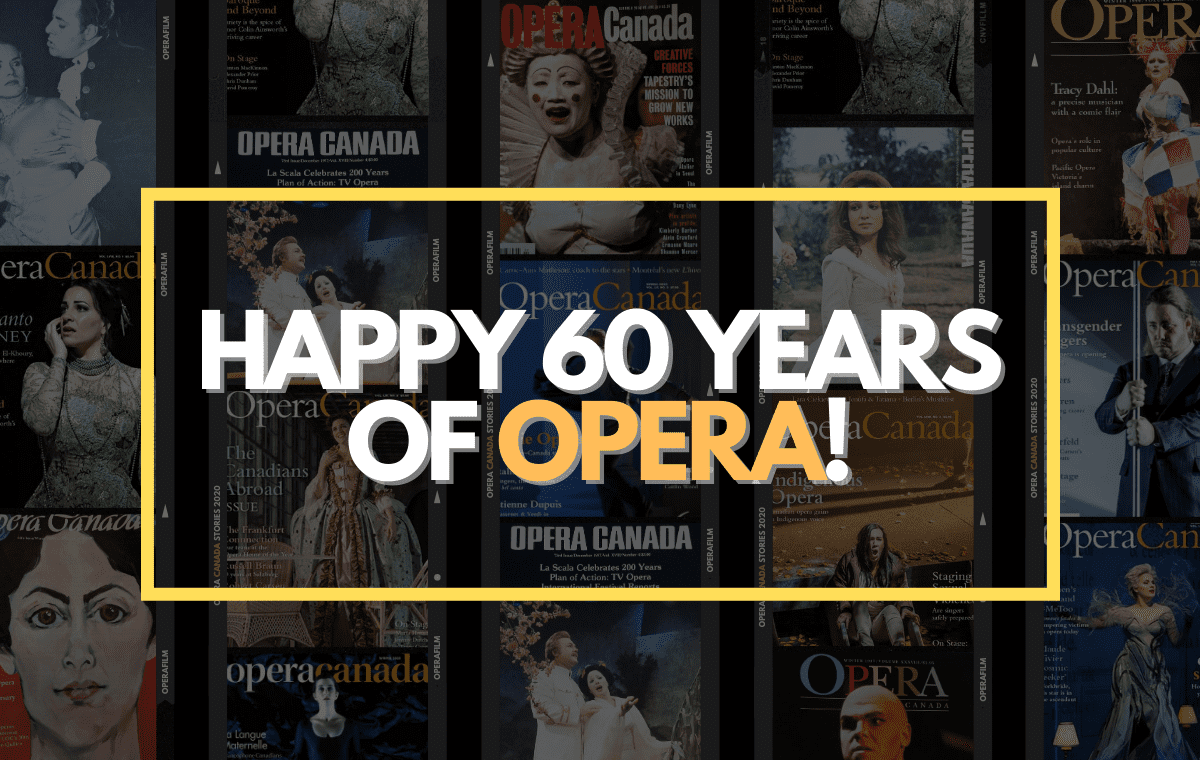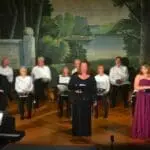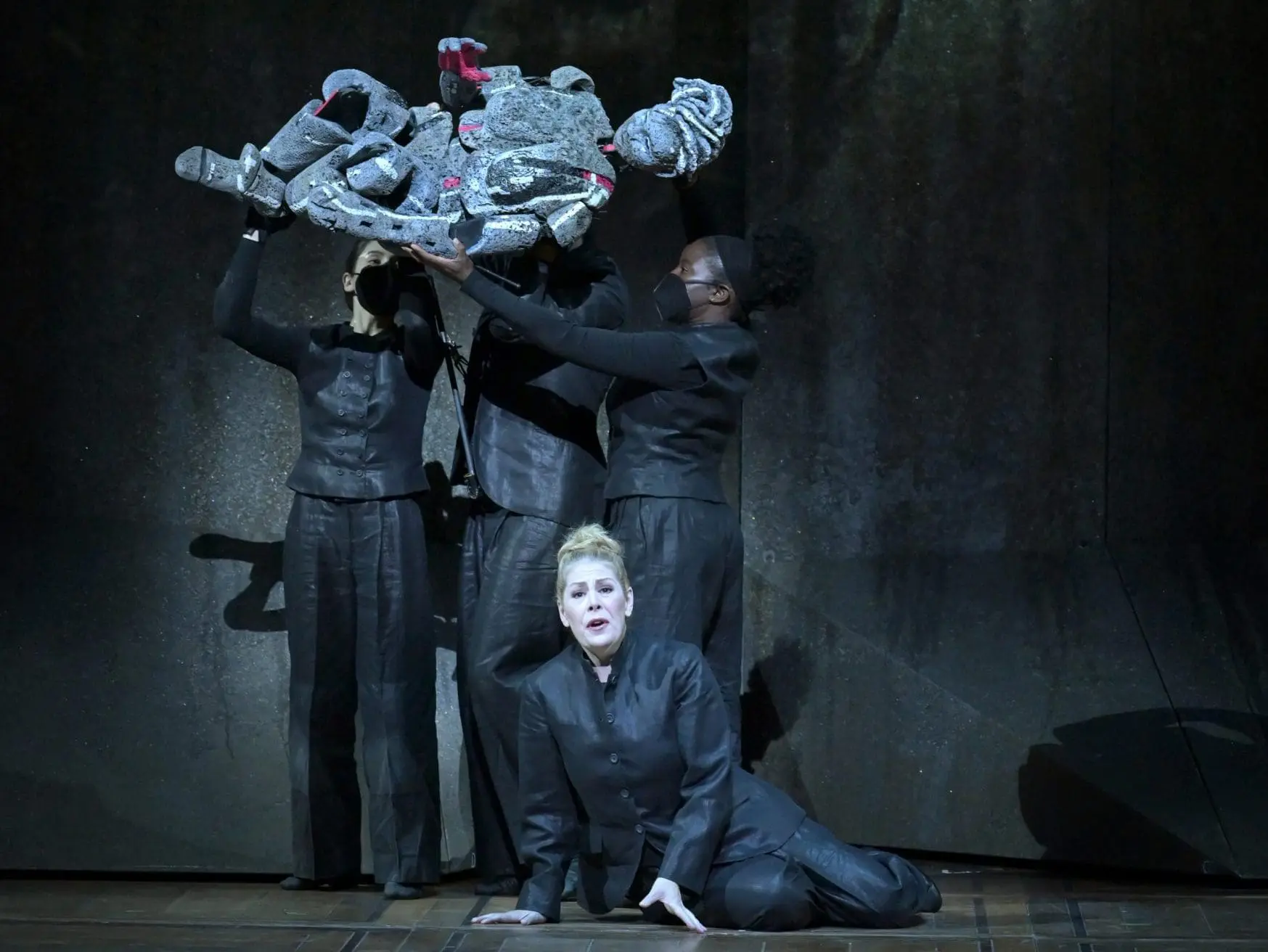With a double bill that opened the Dutch National Opera (DNO) 19/20 season on Sept. 5th, Robert Carsen celebrates the traditional tandem of Mascagni’s Cavalleria rusticana and Leoncavallo’s Pagliacci with a special twist. First, he begins with Pagliacci rather than with Cavalleria and does away with the commedia dell’arte in the first half and the Sicilian village setting in the second. Instead, in true Brechtian style, he shows us the reality of the back-stage, with the actors putting on white-face in front of mirrors framed with bare light-bulbs. The fold-up dressing tables become a key element in the sparse décor, designed by Radu Boruzescu. They serve in both operas and proffer symbolic power as a Vanitas object—as a reminder of mortality.
A further astonishing reversal is operated when we discover that the first two rows of the theatre are filled with choristers dressed as opera goers who then turn and stare at the audience. Throughout the evening they are on and off the stage and into the audience— the whole theatre is their stage. However, Carsen is not just playing cleverly with reality, reversal, and mirror images, but showing us a kind of Milgram Experiment that tests the complicity of the audience and how long they are willing to watch and cheer on the almost certain deaths of Nedda and Silvio. It is Italian verismo turned Brechtian Neinsager (literally, ‘naysayer’) that offers us food for thought.
After the interval we return to find the cast frozen, staring in horror at the victims of Pagliacci’s gruesome double murder. Then Cavalleria begins and the spiral of revenge tightens. We are once again in the backrooms of Dutch National Opera, Santuzza has not only been socially disgraced by the star actor Alfio but fired from the troupe, and pleads with Mamma Lucia, a hard-hearted stage manager, for respite.
Both of operas are served by strong, dedicated singers with whom Carsen works wonders. Notwithstanding, American tenor Brandon Jovanovich tends to push Canio to such strained emotional limits that his voice becomes heated and ready to crack—he doesn’t naturally possess the rich supple timbre that one looks for in this role, but he would have the technique to pull it off if he’d only bring the volume and pathos down a notch. He excelled in the grueling role of Hermann in Salzburg’s 2018 Queen of Spades but Tchaikovsky’s vocal writing suits him much better than the verismo genre.
By contrast, Ailyn Pérez is vocally and stylistically an ideal Nedda and confers a personal spunkiness to the character that makes her fascinating to watch. She’s anything but a victim, while her steamy Latin lover, Italian baritone Mattia Oliviera, brings vocal and physical beauty to Silvio. Roman Burdenko gives an excellent performance as Tonio, as does Marco Ciaponi in the role of Peppe/Arlecchino.
Burdenko returns convincingly as Cavalleria’s Alfio. In his first scene, he celebrates his birthday with the troupe, dancing on the table, gripping an overflowing wine bottle. His aria “Il cavallo scalpita” flows with abundantly rich tone and bravura.
But it is tenor Brian Jagde as Turiddu who is the real discovery of the evening. Jagde’s voice is rich with luscious tone and ease in high notes, while his offstage “Siciliana” and his agonized farewell to Mamma Lucia, played by the excellent Elena Zilio, were both superb. Lola is seductively sung by Canadian mezzo-soprano Rihab Chaieb.
Anita Rachvelishvili all but stops the show as Santuzza, to the point where her incomparable presence and rare vocal prowess ineluctably overshadow the other singers. The Georgian star has had a string of triumphs in recent years, including stellar performances at the Met as Dalila in Samson et Dalila and the Principessa di Bouillon in Adriana Lecouvreur, which have hoisted her up into the ranks of the world’s top singers. Despite this recent stardom she maintains an ability to subsume herself into her roles, and here gives a deeply moving performance.
After conductor Sir Mark Elder was obliged to cancel due to a pinched nerve in his neck shortly before the premiere, Lorenzo Viotti, who is poised to succeed Marc Albrecht as chief conductor at Dutch National Opera and the Netherlands Philharmonic, agreed to step in on very short notice. Reportedly learning the two scores in just three days, his style is elegant and precise more than lushly passionate. He imbues Cavalleria’s great symphonic intermezzo with dark omens of the impending drama, yet textures remain crystalline, unfurling perfectly arched melodies. Viotti’s interpretation is as fresh and atypical as Carsen’s staging, and as a team they confer a new outlook on these venerable classics—hopefully there are more collaborations between them in the future.


